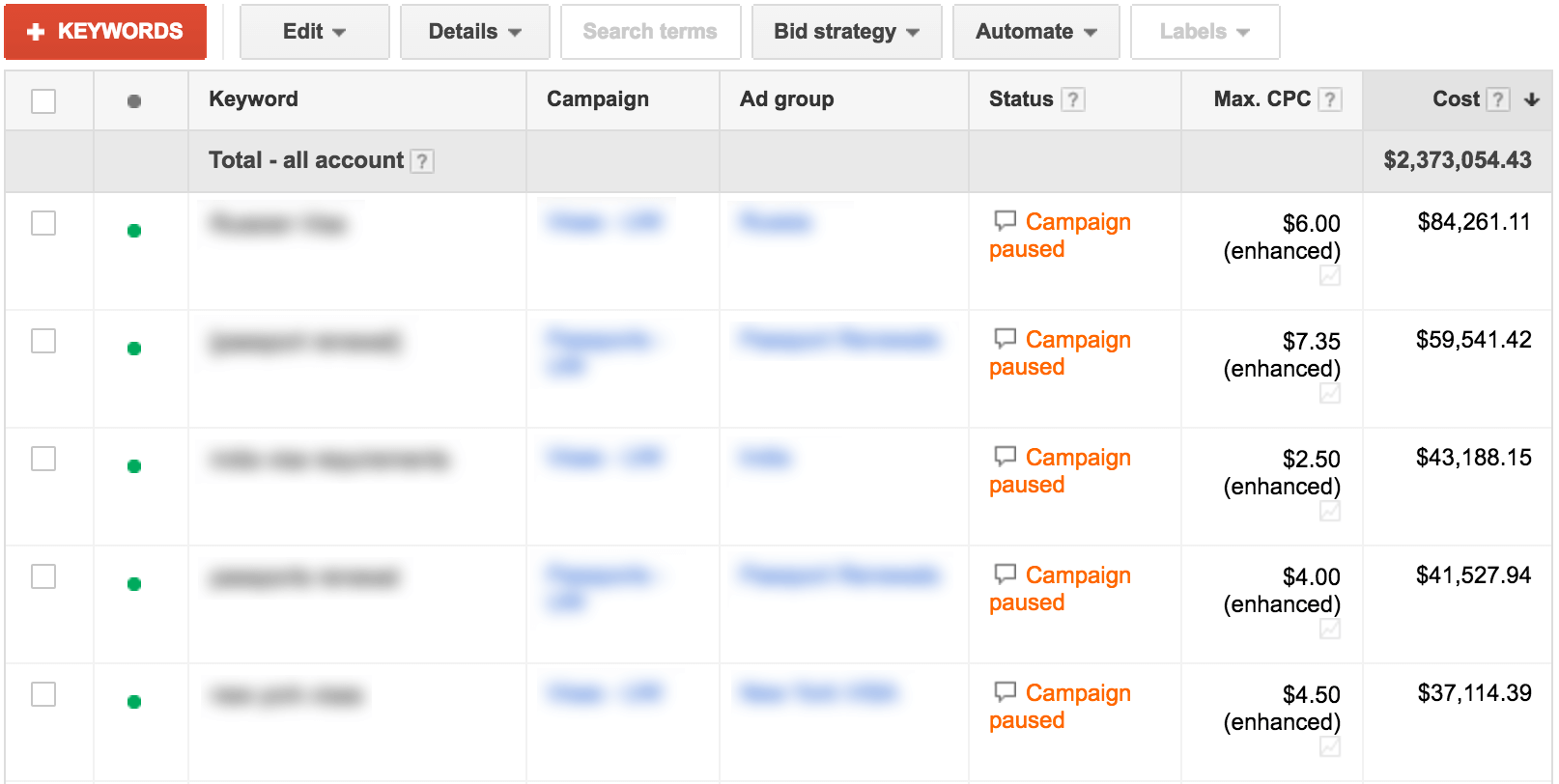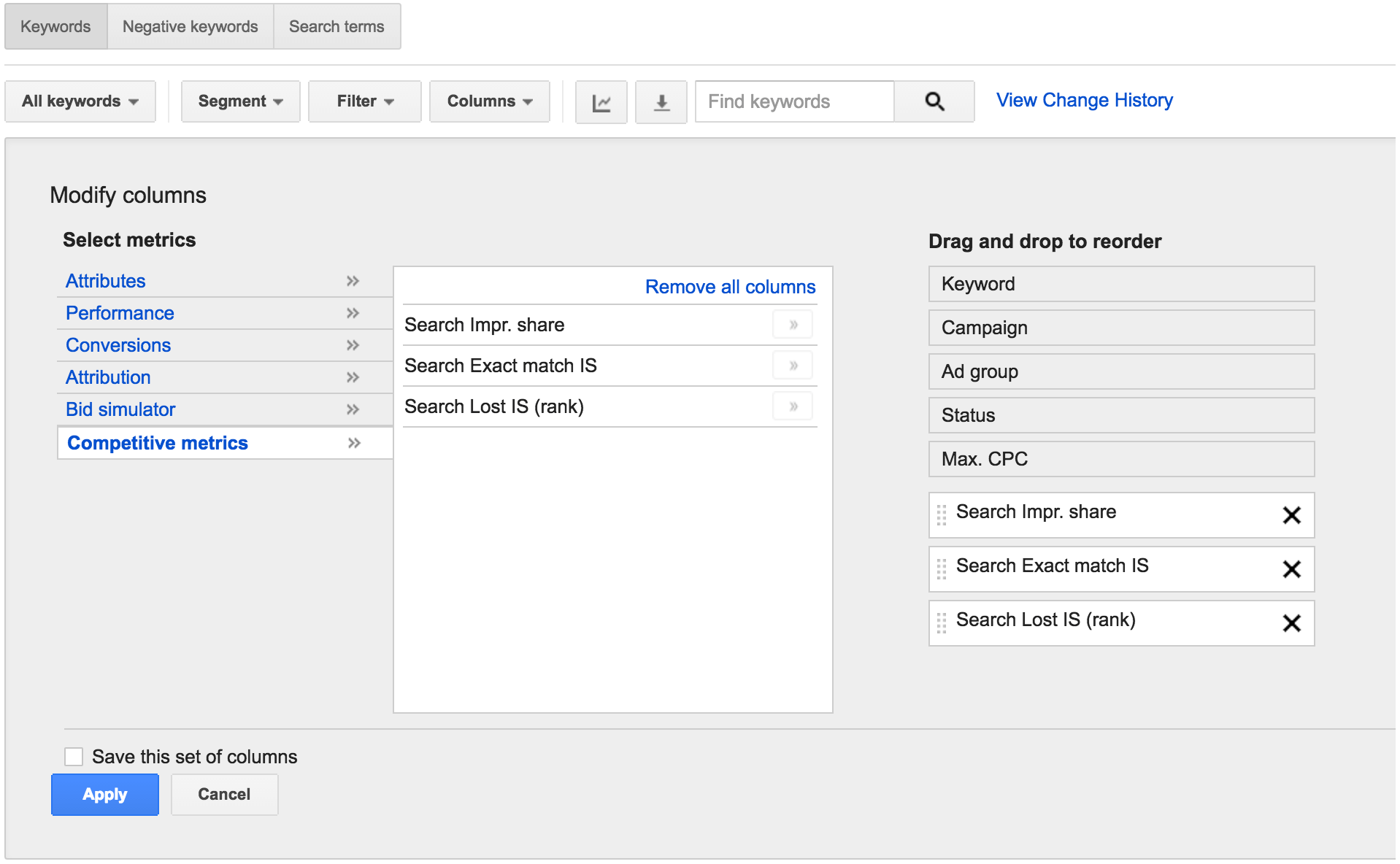Impression share may not be the ultimate measure of paid search success, but columnist Jacob Baadsgaard shows how tracking this metric can lead to paid search improvements that can really boost your bottom line.

Impression share is an interesting paid search metric. On the surface, you could argue that impression share is a fairly useless metric. In fact, I’ll admit that I’ve argued for years that impressions really aren’t an important measure of paid search success.
However, while I still strongly believe that ROI — not impressions, clicks or conversions — is the ultimate gauge of paid search success, impression share itself is far from a useless metric.
In fact, after auditing thousands of paid search accounts at Disruptive Advertising, we’ve found that impression share is often the difference between effective campaigns and ineffective ones.
Are you paying for the wrong impressions?
Typically, most advertisers consider paid search impressions “free.” And that makes sense; paid search advertising is based on a cost-per-click (CPC) model, not a cost-per-impression (CPM) model.
If you get 1,000 impressions and only one click, you only pay for the one click, right?
That’s technically true, but there’s a hidden economy to paid search advertising. If you can’t afford to pay for more clicks, Google stops showing your ads.
So, in effect, if you can’t pay for more clicks, you can’t pay for more impressions.
This hidden economy begs the question, “Are you paying for the wrong impressions?” After all, if impressions come at a cost, you really can’t afford to spend your budget on the wrong impressions (and, by extension, clicks).
What a waste!
To answer that question, we need to take a look at your keywords. Open your paid search account, adjust your date range to cover the past three to six months, and then choose the tab labeled “Keywords.”
After that, choose the Filter drop-down menu and create a new filter for Conv. rate < 2%. It should look like this:

Hit “Apply,” and you’ll end up with a list that looks like this one:

See the problem here? Eleven percent of their ad spend is paying for five poorly converting keywords!
Making the wrong impression
Obviously, it’s frustrating to waste money on impressions that aren’t leading to conversions. Unfortunately, since most advertisers have limited budgets, all of that wasted ad spend also has consequences for their other campaigns.
This is where things start to get interesting. Change your filter to Conv. rate > 2%, click Columns > Modify columns, and then select “Search Lost IS,” “Search Exact match IS,” and “Search Impr. share” like so:

You’ll end up with a list that looks something like this:

Now you can see just how wasted ad spend sucks the budget away from the best keywords.
Check out the second keyword. It has a conversion rate of 8.28 percent, but it only gets one-third of the potential impression volume — even when the exact keyword gets typed in!
The question is, why?
Search Lost IS (rank)
When you look at the column for Search Lost IS, you can see that this client is losing 50.54 percent of potential impressions due to rank issues.
You know what that means? Their bids are too low.
When a keyword is converting this high, that’s a big problem. Large chunks of the ad budget are being spent on keywords that do almost nothing for the client, while their best keywords don’t have enough budget to rank properly!
The easiest way to fix this is to simply turn up the bids. You need to remember, though, that upping your bids and ranking comes at a cost. Your CPC will increase, increasing your cost-per-conversion, which ultimately increases your cost-per-sale.
If the keyword is a clear winner like this one, that’s not a big deal, but if that keyword is barely profitable at the CPC it’s currently at, increasing the CPC to improve impression share might not be the best idea.
Search Lost IS (budget)
Low-ranking ads aren’t the only way you lose impression share. Remember, if you’re paying for the wrong impressions and clicks, you can’t afford to pay for the right ones.
Now, the Keywords report doesn’t show Search Lost IS (budget), so you need to find it in the Campaigns report. Jot down which campaigns your high-performing keywords happen to be in, and then click on those campaigns in the Campaigns tab.
Once you’re in the campaign, add a column for Search Lost IS (budget). This will let you see the percentage of potential impressions that are being lost in this campaign because of limitations of budget.
Remember that keyword with the 8.28 percent conversion rate? It was in a campaign that was losing 77 percent of its impression share because of budget limits.
That meant the keyword was only getting 33 percent of the potential impressions, and the campaign itself was only receiving 23 percent of the possible impressions due to insufficient budget.
And where was all that budget going? It was paying for worthless impressions!
I’m starting to sense an opportunity here. Are you?
Fixing things
Once you know which keywords are driving the wrong impressions and which ones are making a great impression, fixing things is actually fairly simple.
Cut the budget from your lame keywords. They don’t need it. Then, redirect that spend to your great keywords. Your top keywords should be getting at least 90 percent of the available impression share.
It might seem like a simple fix, but it really works. Here’s what happened for this client when we redirected their budget from their useless keywords to their high-performing keywords:

Literally the day after we switched things up for our client, their ads were showing for the proper searches twice as often! Oh, and sales increased by more than 50 percent within a month. After a year of optimization, sales were up by nearly 200 percent.
Conclusion
So, while impression share may not be the ultimate measure of paid search success, impression share is still an incredibly important metric to track.
Just remember, every click has a cost. Paying for one click means you can’t pay for another. And if you’re wasting your budget on the wrong clicks, you won’t have the budget to pay for the right ones.
[Article on Search Engine Land.]
Some opinions expressed in this article may be those of a guest author and not necessarily Marketing Land. Staff authors are listed here.
Marketing Land – Internet Marketing News, Strategies & Tips
(72)
Report Post





